What to do with inheritence?
sparksals
17 years ago
Related Stories

LIFEHow to Handle Inherited Things You Don’t Really Want
Whether you’ve inherited a large collection of items or a single bulky piece of furniture, it’s OK to let it go if you don’t need or want it
Full Story
FEEL-GOOD HOMEInherited Pieces: Embrace the Approach That Works for You
How you remember and honor loved ones through heirlooms is your decision alone
Full Story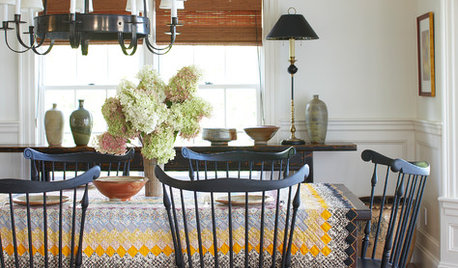
DECLUTTERINGEscape the Inheritance Trap: What to Do With Sentimental Pieces
Too meaningful to toss but too hideous, precious or unusual to display? These ideas can help
Full Story
ANTIQUESInherited an Antique? Here’s How to Work It Into Your Home
Find out how to make that beloved vintage piece fit in with your decor
Full Story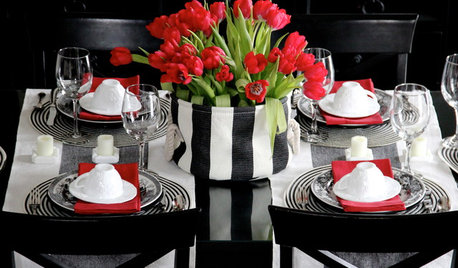
ENTERTAININGGot Hand-Me-Down Dinnerware? Make a Memorable Meal
They might be mismatched and not your style, but those inherited plates and forks can help bring meaning to your table
Full Story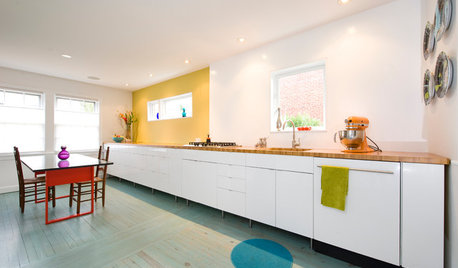
KITCHEN DESIGNKitchen of the Week: Grandma's Kitchen Gets a Modern Twist
Colorful, modern styling replaces old linoleum and an inefficient layout in this architect's inherited house in Washington, D.C.
Full Story
HOUZZ TOURSHouzz Tour: Vintage-Modern Studio in Sweden
An apartment of thoughtfully curated flea market finds, inherited pieces and plentiful natural light works hard for a creative professional
Full Story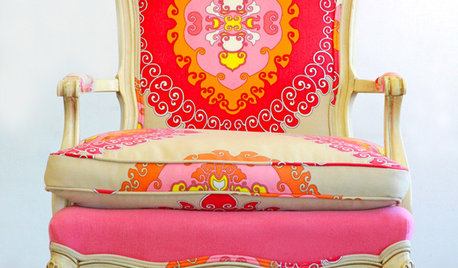
FURNITUREOld Furniture: Clean, Reupholster or Replace It?
A veteran upholstery cleaner weighs in on the options for found, inherited and thrift store furniture
Full Story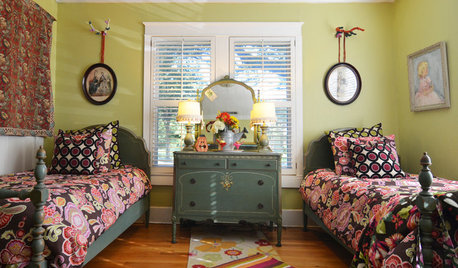
HOUZZ TOURSMy Houzz: Color and Heirlooms Combine in a Welcoming Bungalow
Inherited furniture mixes with bright hues in a 1921 Dallas home that embraces the neighborhood and modern life
Full Story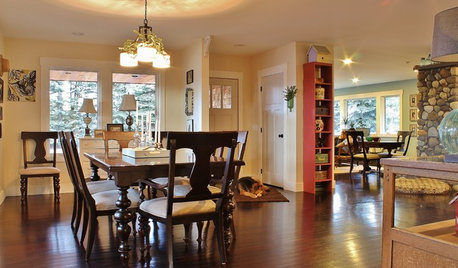
HOUZZ TOURSMy Houzz: Renovated 1912 Farmhouse Radiates Warmth and Charm
A Russian fireplace anchors a Washington family home filled with inherited, salvaged and flea market pieces
Full StoryMore Discussions



zone_8grandma
qdognj
Related Discussions
Problem with pandanus
Q
inherited a Japanese maple (Bloodgood?) what now??
Q
What to do with inheritance
Q
Inheritance...change in plans of parents, do you tell?
Q
zone_8grandma
zone_8grandma
alphacat
zone_8grandma
sparksalsOriginal Author
dave_donhoff
hrajotte
joyfulguy
sparksalsOriginal Author
dave_donhoff
sparksalsOriginal Author
joyfulguy
dave_donhoff
nelles_gw
sparksalsOriginal Author
joyfulguy
sparksalsOriginal Author
zone_8grandma
sparksalsOriginal Author
joyfulguy
sparksalsOriginal Author
cissado
sparksalsOriginal Author
joyfulguy
cissado
sparksalsOriginal Author
joyfulguy